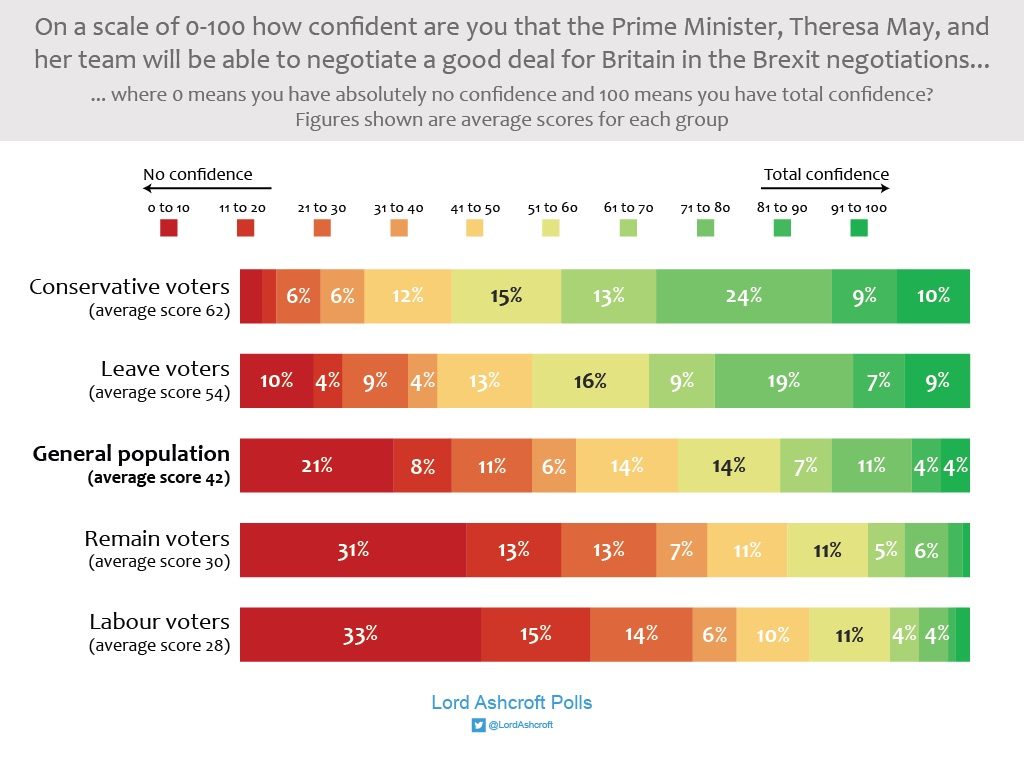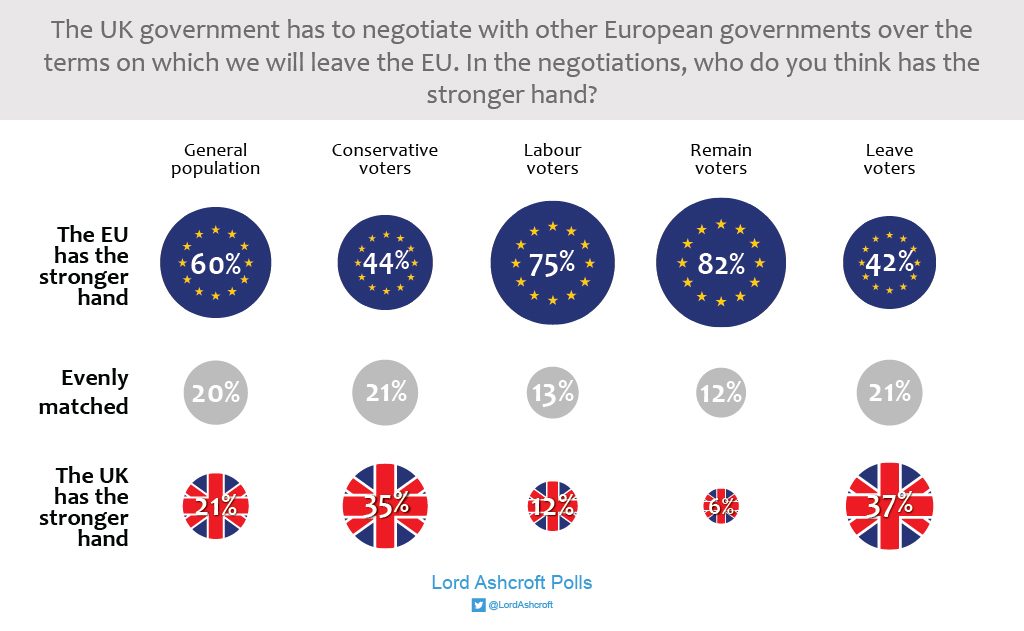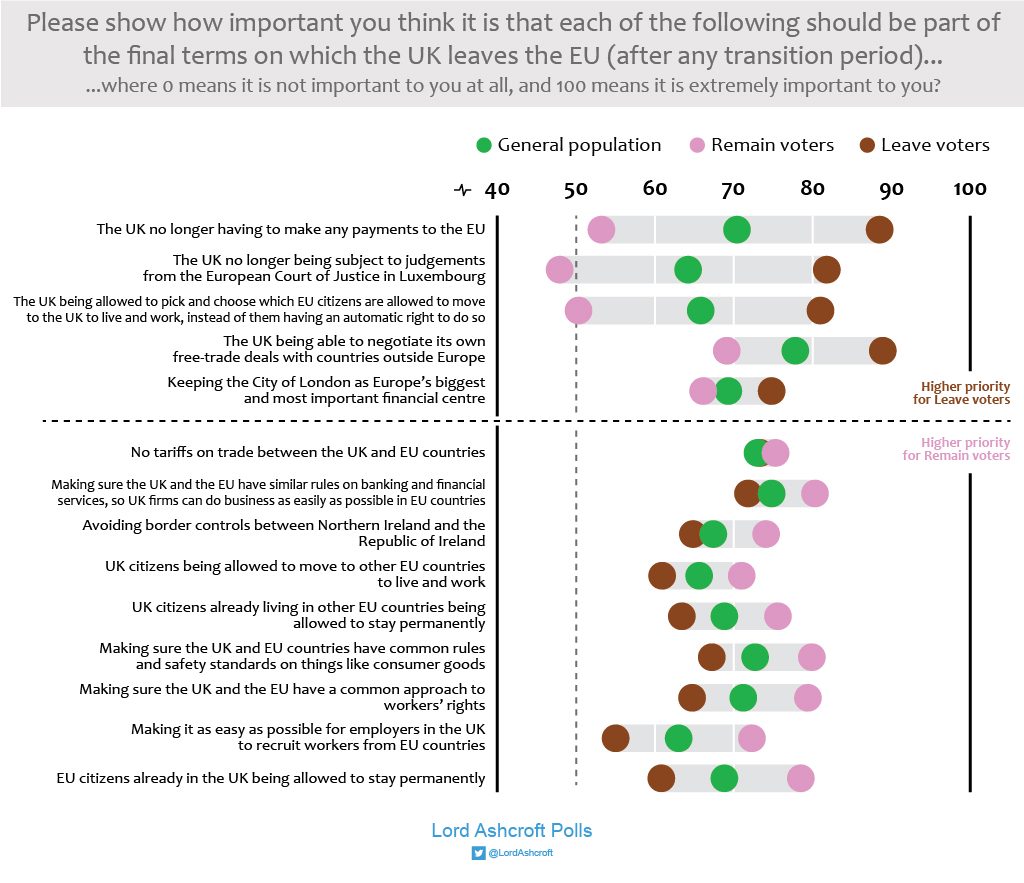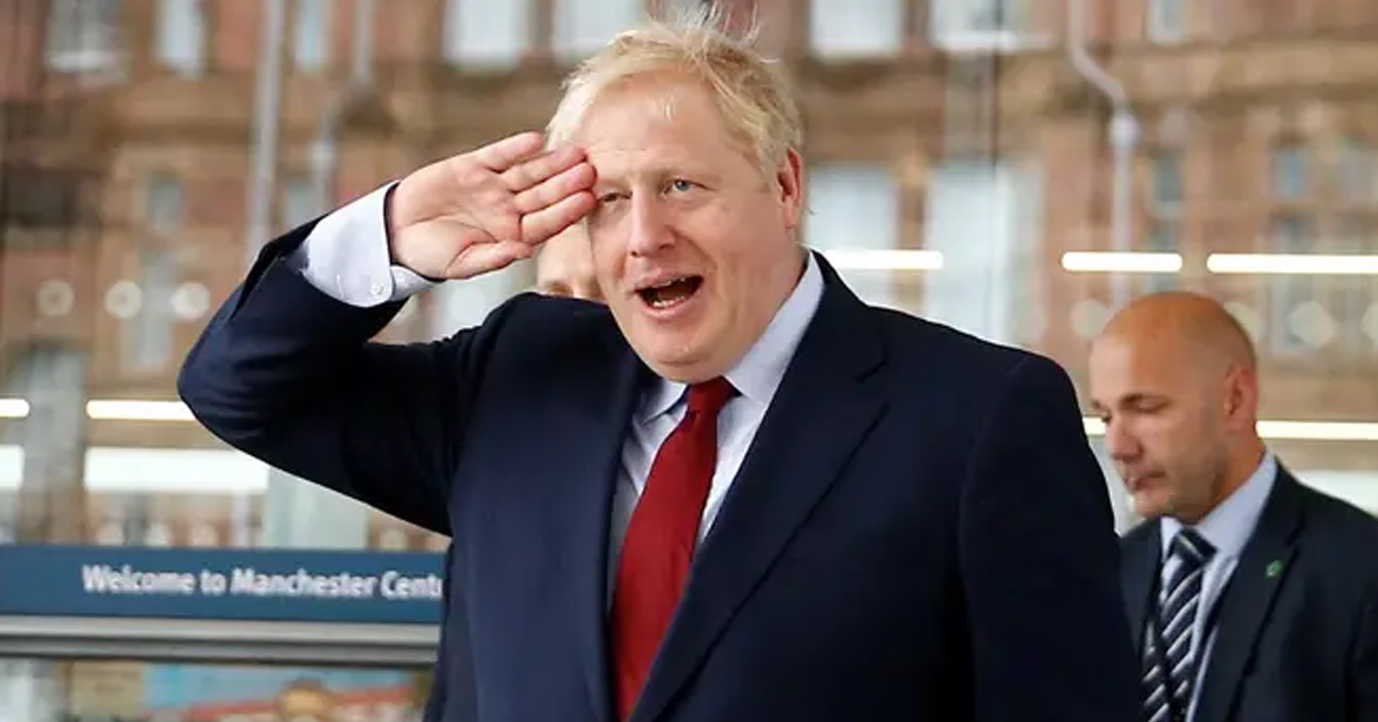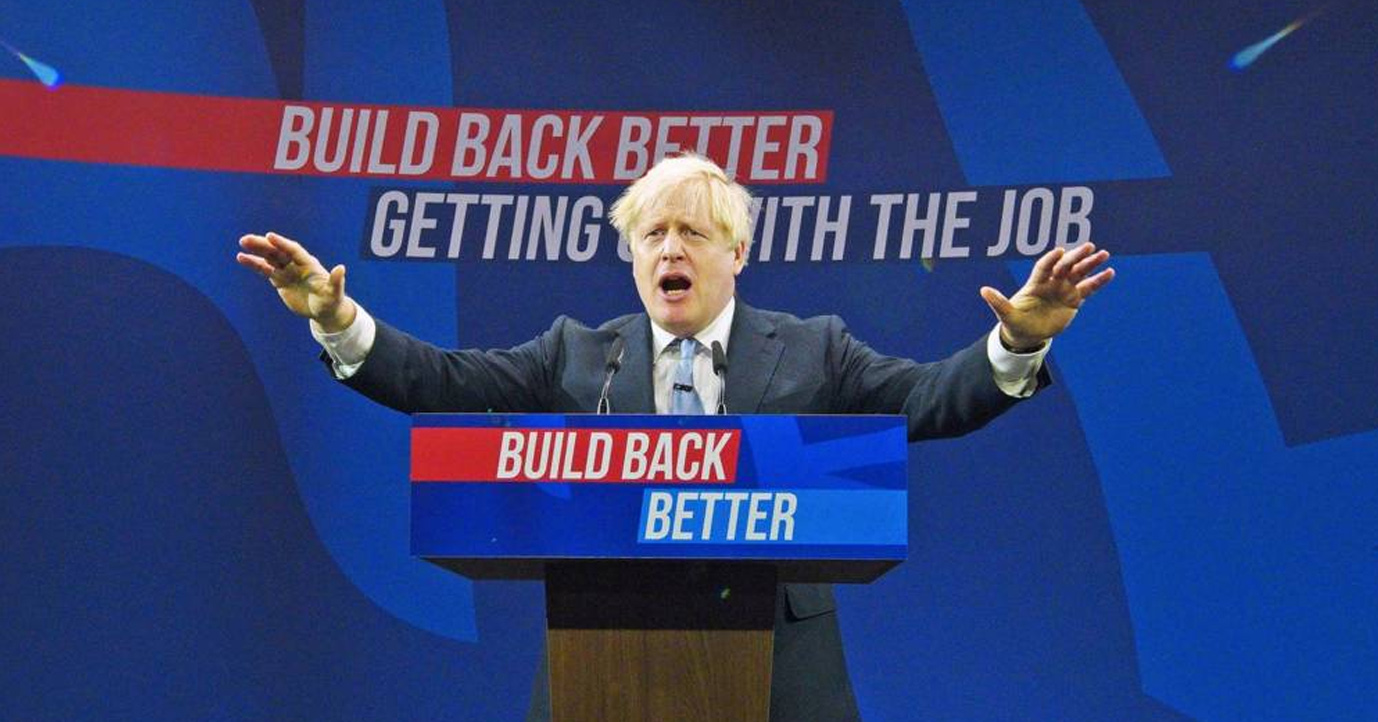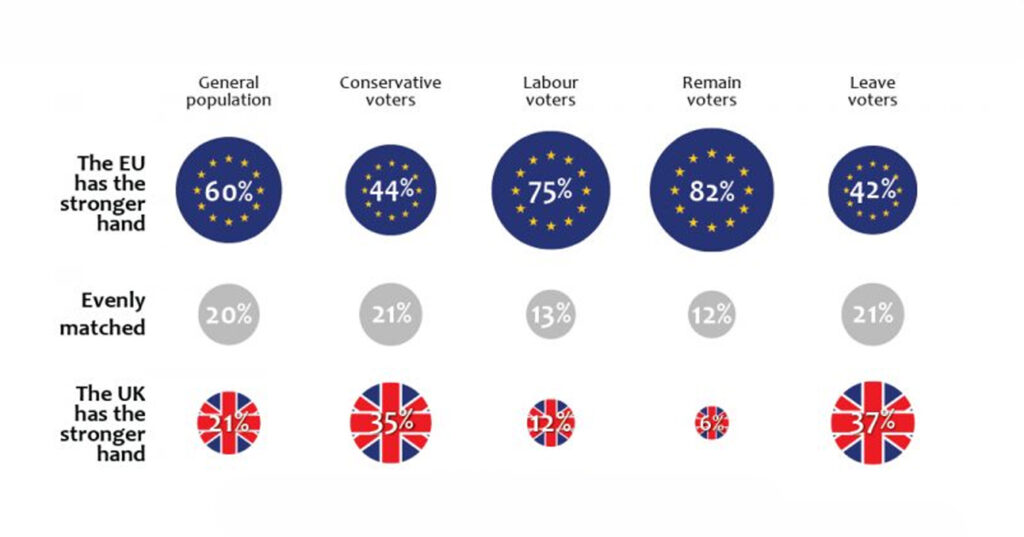
Voters are losing confidence that the government will be able to secure a good Brexit deal for Britain, according to my latest survey. The poll, conducted this week, also finds that most think the EU’s objective is to punish Britain and stop other countries leaving, and that Remain and Leave voters have different priorities for the UK’s post-Brexit relationship with EU countries.
With talks once again underway in Brussels, my research shows that both Remain and Leave voters are less sure about the prospect of a good outcome than they were before the general election. In March, before the election was called, I asked voters to say how confident they were that Theresa May and her team would be able to negotiate a good deal on a scale from zero (no confidence at all) to 100 (total confidence). The average answer then was 52, but this has fallen to 42 in my new survey, conducted this week.
Scores fell among both people who voted Remain (from 38 to 30) and Leave (from 66 to 54). Those who voted Conservative at the general election were more optimistic than most that a good deal would be achieved, only one in ten of them said they were very confident, with a score above 90.
Who runs the table?
Six in ten voters said they thought the EU had the upper hand in the negotiations, since a good deal for Britain could mean more countries deciding to leave. Only just over one in five said they thought Britain had the advantage, since the rest of Europe would want to ensure they could export as much as possible to the UK once we left. The remaining 20% thought the two sides were evenly matched. More than eight in ten of those who voted Remain said they thought the EU had the upper hand in the talks – but even Leave voters and Conservatives were more likely to think the advantage lay with the EU than with Britain.
While just over half of Leave voters thought the biggest risk in the negotiations was that the deal would “end up keeping our relationship with the EU too much like it is now,” three quarters of Remainers said their bigger concern was that the government would be “so determined to show it is making a clean break with the EU that they will end up damaging our future trade and international relationships”. The latter was considered the bigger risk by the population as a whole, by 43% to 29%.
What matters most?
As for what the government’s priorities should be in the negotiations, there was a stark contrast between what Leave and Remain voters want to see as part of the post-Brexit settlement. Out of fourteen potential objectives, the four most important to Leavers were the UK no longer having to make any payments to the European Union, being able to negotiate its own free trade deals with other countries, no longer being subject to judgments from the European Court of Justice, and being allowed to pick and choose which EU citizens can move here to live and work, rather than them having an automatic right to do so.
Very strikingly, there is no overlap between the Leavers’ list and the top priorities of Remainers. These were making sure the UK and the EU have a similar approach to banking and financial services so UK firms can do business as easily as possible in EU countries, common rules and safety standards on things like consumer goods, EU citizens already in the UK being allowed to stay permanently, and a common approach to workers’ rights.
Deal or no deal?
Just over one in three voters admitted they did not understand what people meant when they talked about leaving the EU with “no deal” (though the true number is probably higher). Only one in four said they understood completely.
Just over half (53%) said they thought leaving with no deal sounded like a bad thing, though this included 84% of those who had voted Remain. Leavers were evenly divided as to whether such an outcome would be good or bad (28% each), with more than a third saying it would be neither. Of those who admitted they did not understand what leaving with no deal would mean, only one in twenty said they thought it sounded like a good thing.
More than six in ten, including half of Remainers and three quarters of Leavers, said they thought the EU was not really trying to get a good deal – “they want to punish the UK and stop other countries wanting to leave”.
At the same time, only four in ten voters – and only one third of Remainers and just over half of Leavers – thought the British government was genuinely trying its best to agree a good deal: nearly three in ten thought the government “would rather the UK left with no deal.”
